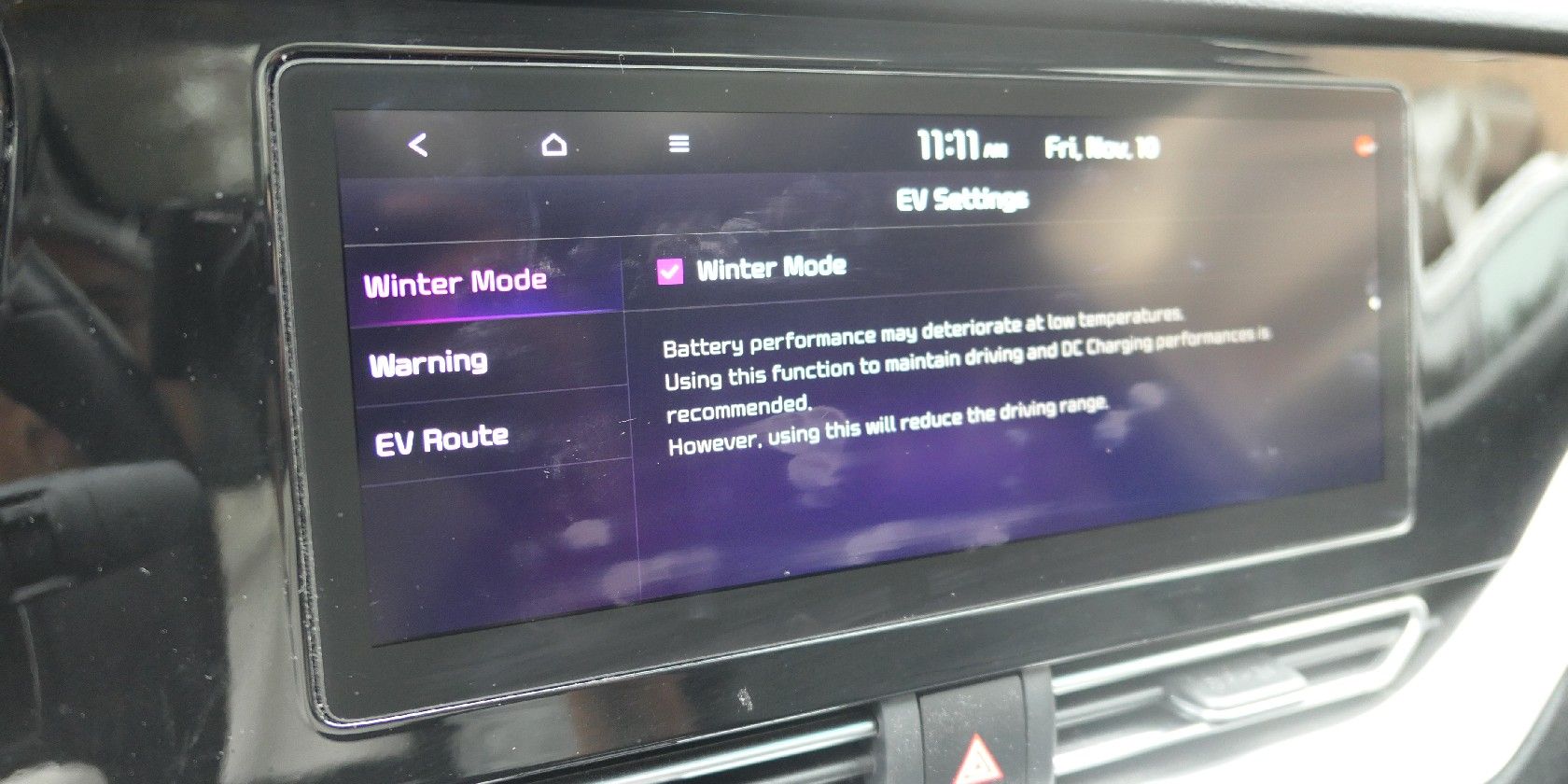Why Do EVs Have a Heat Pump? Do They Need One?

Key Takeaways
Heat pumps in electric cars provide more efficient heating by transferring heat from the outside to warm the cabin and battery, increasing winter range.
The added complexity of heat pump systems comes with an extra cost, but electric vehicles with heat pumps are still cheaper to service than gas-powered cars.
The need for a heat pump in an electric car depends on the climate where you live, with areas that experience colder winters benefiting the most from this feature.
Heat pumps are warming homes, drying clothes, and even appearing in electric cars. But in electric cars, heat pumps are sometimes an optional extra. What do they do, and are they worth the extra cost?
What Is a Heat Pump?
We don’t all have a heat pump in our homes, but most of us do have something similar: a refrigerator. A fridge releases refrigerant gas into a compressor (a pump of sorts) that sends the gas through a series of tubes known as a condenser. The condenser compresses the gas, turning the gas into a liquid and releasing heat into the surrounding area. The liquid then passes into an evaporator, which converts it back into a gas, absorbing heat from the surrounding area. In this case, the evaporator pulls heat from inside the fridge.
A heat pump goes through the same routine but takes advantage of a different process. You benefit from the heat that the condenser releases.
How a Heat Pump Works in an EV
An EV’s heat pump takes air from outside the vehicle, runs it through a compressor, and sends the heat being released from the condenser inside the main cabin, where it warms the air around everyone inside (or it uses this heat to warm the car’s battery, which doesn’t like to be cold either).
An EV without a heat pump instead typically relies on a form of resistive heating. In short, when you run an electric current through a material that provides resistance, the resulting friction produces heat. This is actually an efficient process since all of the electricity is converted into heat. But by moving warmth from one location to another, a heat pump is able to provide more heat than it’s using in energy.
A Heat Pump Increases Winter Range
EVs suffer from reduced range in the winter. They’re not unique in this regard. Gas-powered cars also get reduced gas mileage in the winter, but with many vehicles only displaying a fuel gauge ranging from E to F and gas stations aplenty, we often hardly even notice. But with electric cars, you can watch a car with a range of 250 miles in the summer drop to under 200 miles in the winter. This, combined with issues with public EV charging, contributes to range anxiety.
A heat pump reduces how much your range drops in the winter. Since lithium batteries struggle in cold temperatures, you won’t be able to drive as far as you can in warmer months. But by heating your car’s cabin and its battery pack using less electricity, you increase how much energy is left over for actually driving. If you have the choice between a model with a heat pump and one without, the model with the heat pump will be able to drive just a bit further in the winter before it needs to recharge.
Heat Pumps Come With an Added Cost
There’s a reason companies charge more for cars with heat pumps, and that’s because the systems are more complex. They have more components, meaning more things to manufacture and more parts that can potentially break (though EVs remain cheaper to service than gas-powered cars).
After all, heat pumps are often installed alongside (rather than instead of) resistive heating. That way, even if the air outside is too cold to work with, you aren’t left without a way to warm your vehicle. From an engineering perspective, a heat pump is an optional extra.
Does Your EV Need a Heat Pump?
Whether you benefit from a heat pump depends largely on where you live. In places where it snows, you absolutely want an EV with a heat pump despite your resistive heater having to kick in when it’s extremely cold. Even if your winters hover above freezing but chilly enough for a jacket, a heat pump is worth it.
On the flip side, if your winters are so mild that you barely run the heater, the benefit will be negligible. In that circumstance, you may be better off saving yourself the money if your car model gives you the option.
Source link






/cdn.vox-cdn.com/uploads/chorus_asset/file/24875918/Screenshot_2023_08_26_at_4.25.23_PM.png?resize=390%2C220&ssl=1)